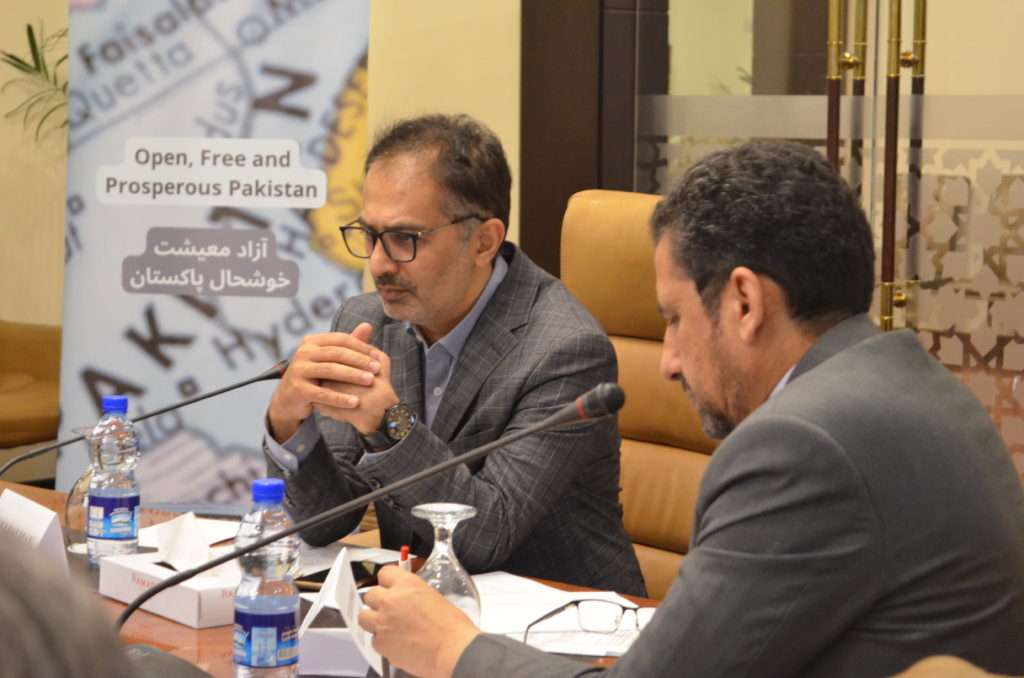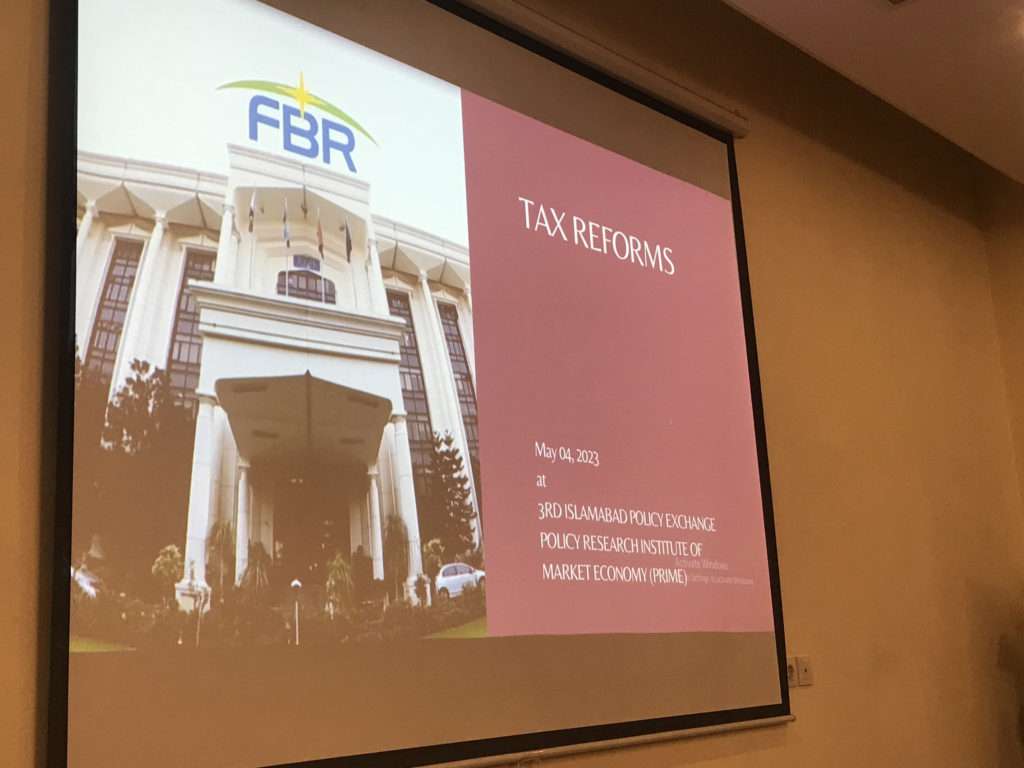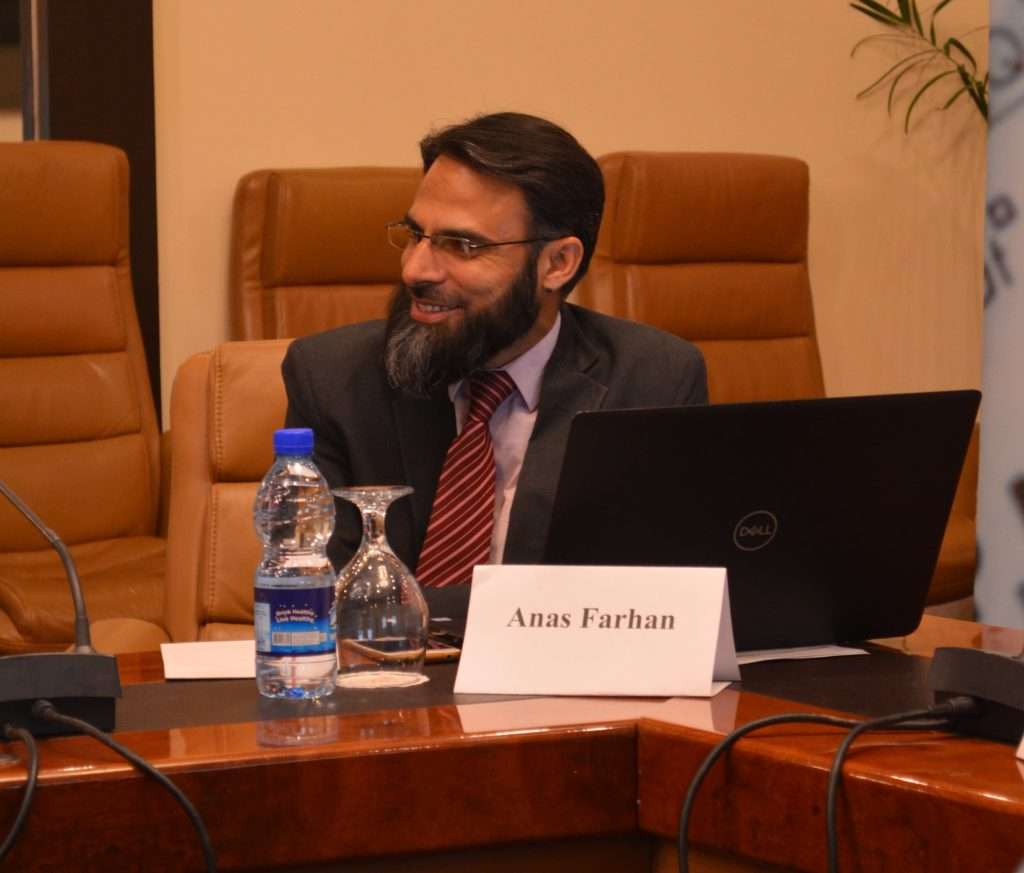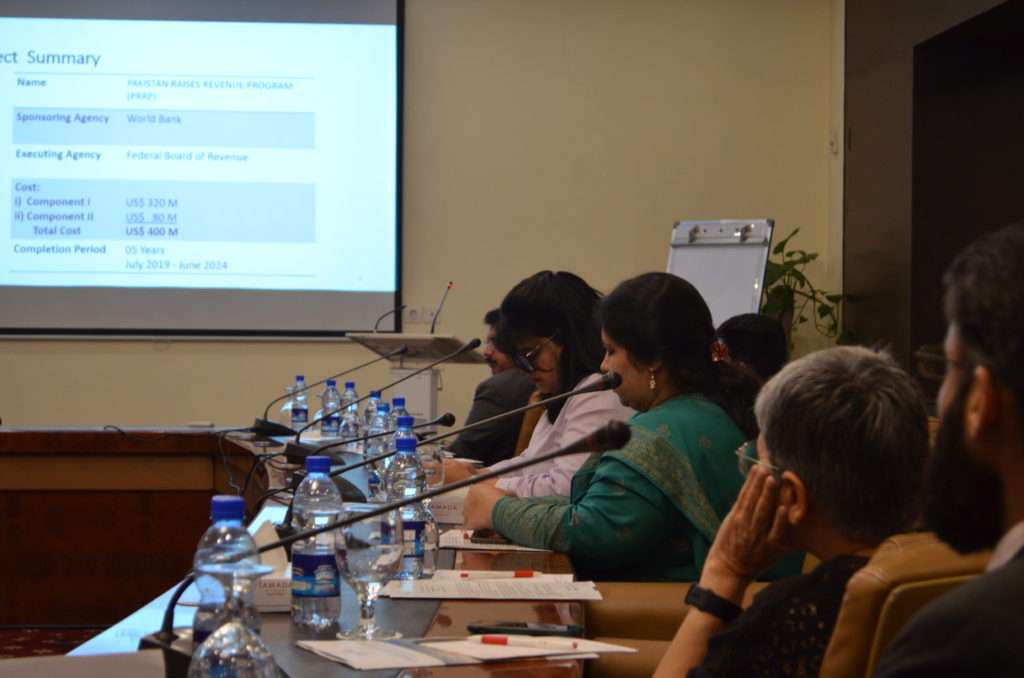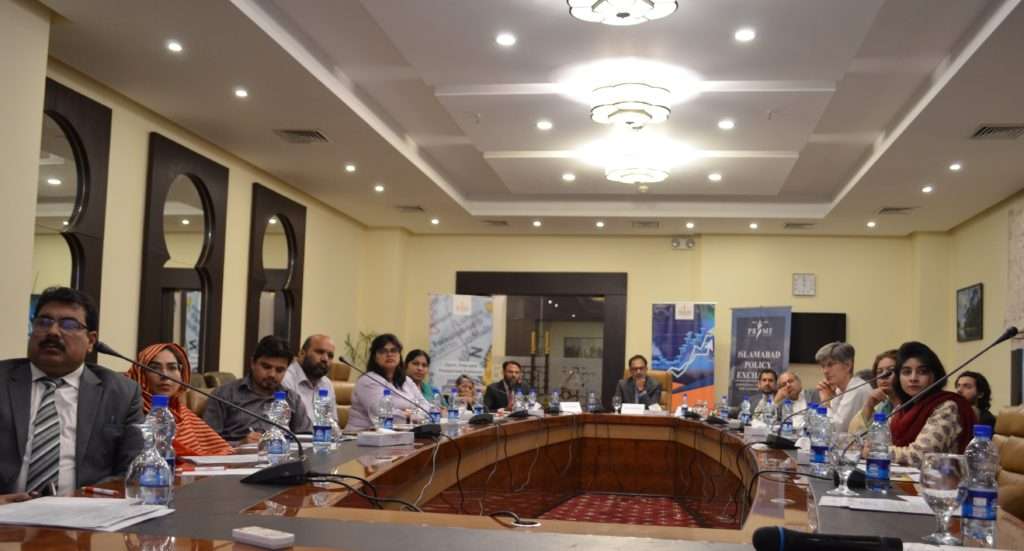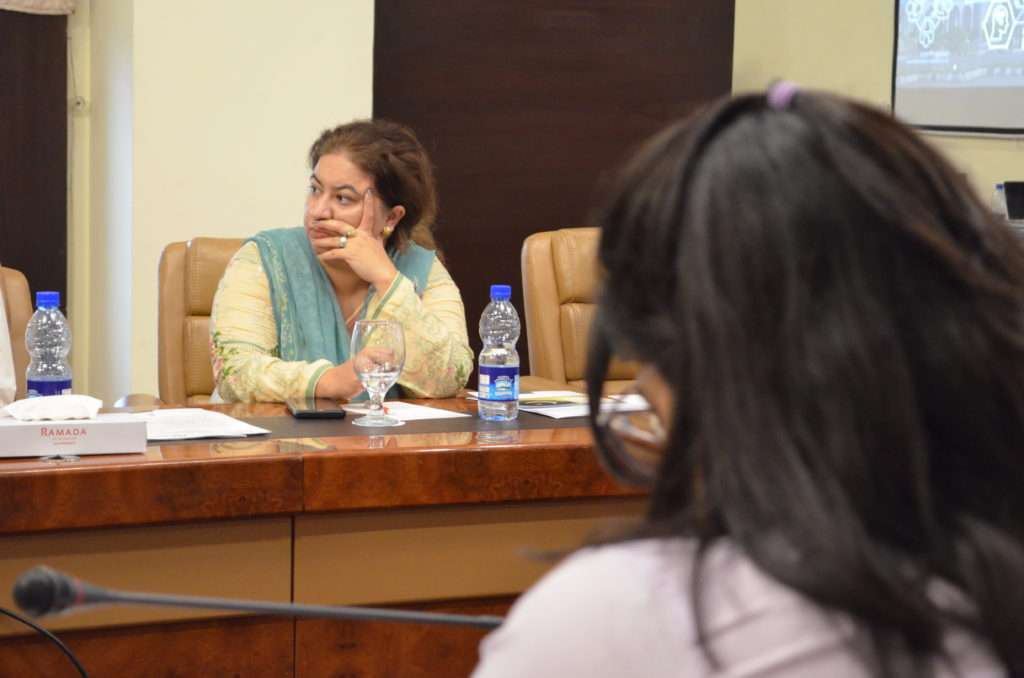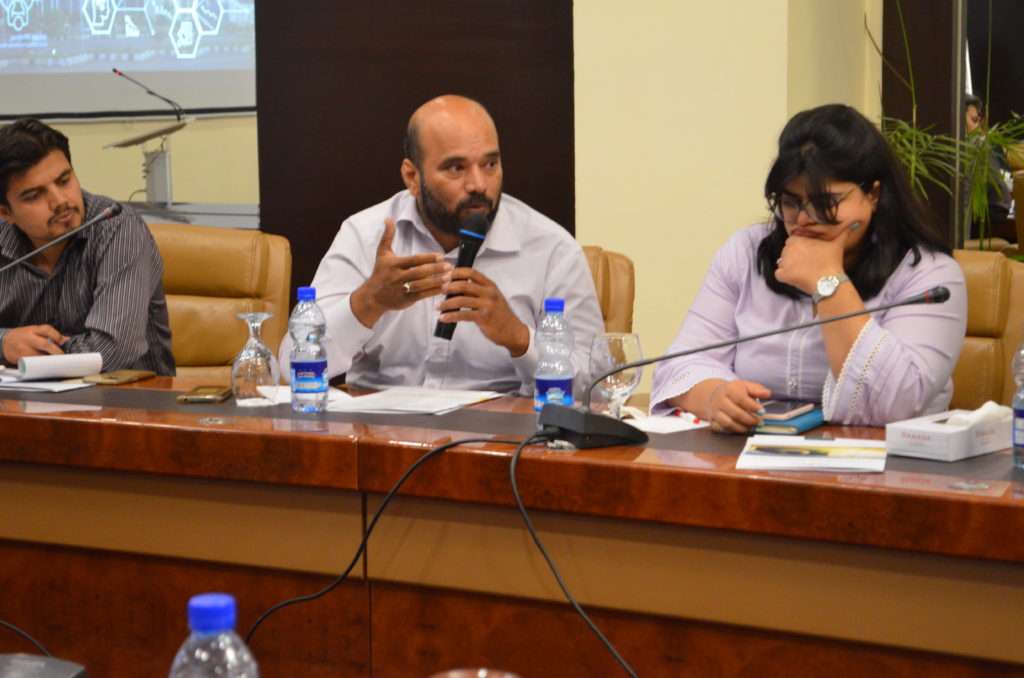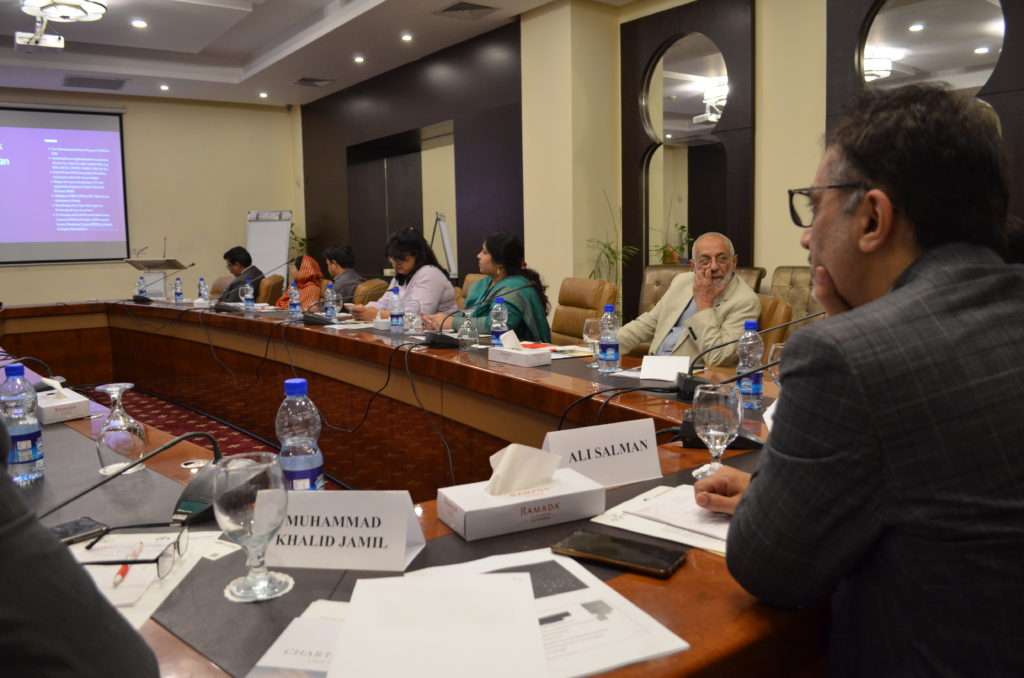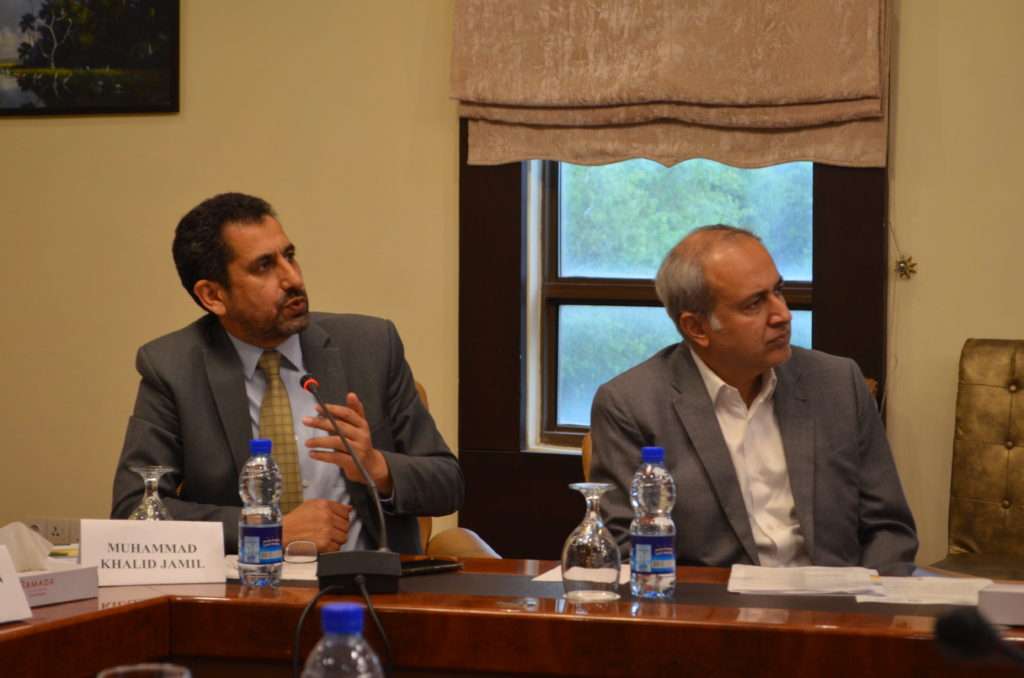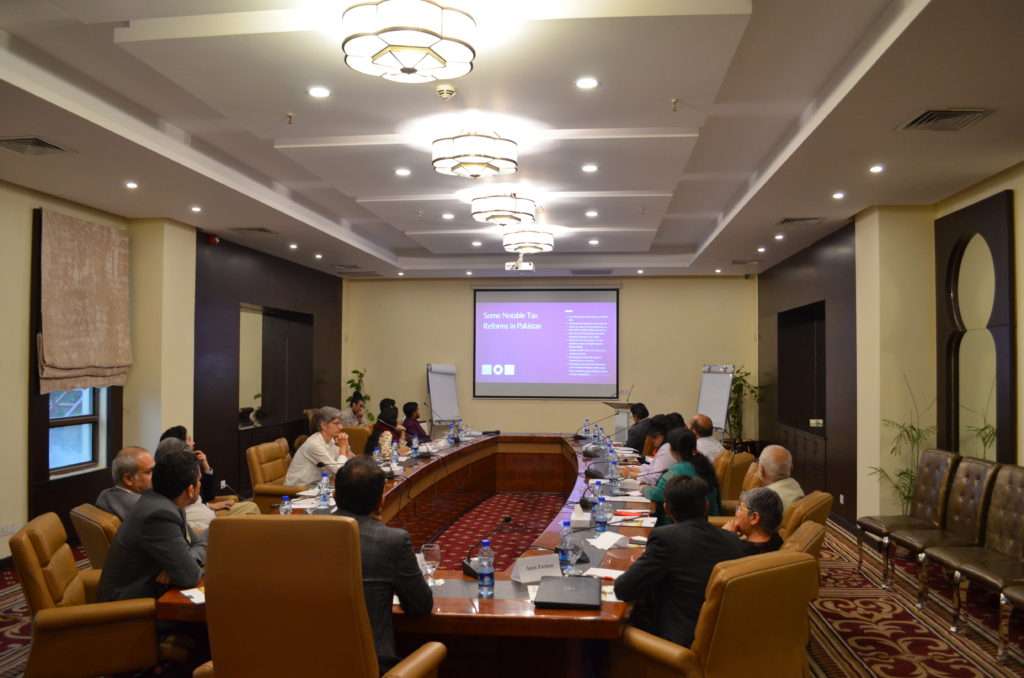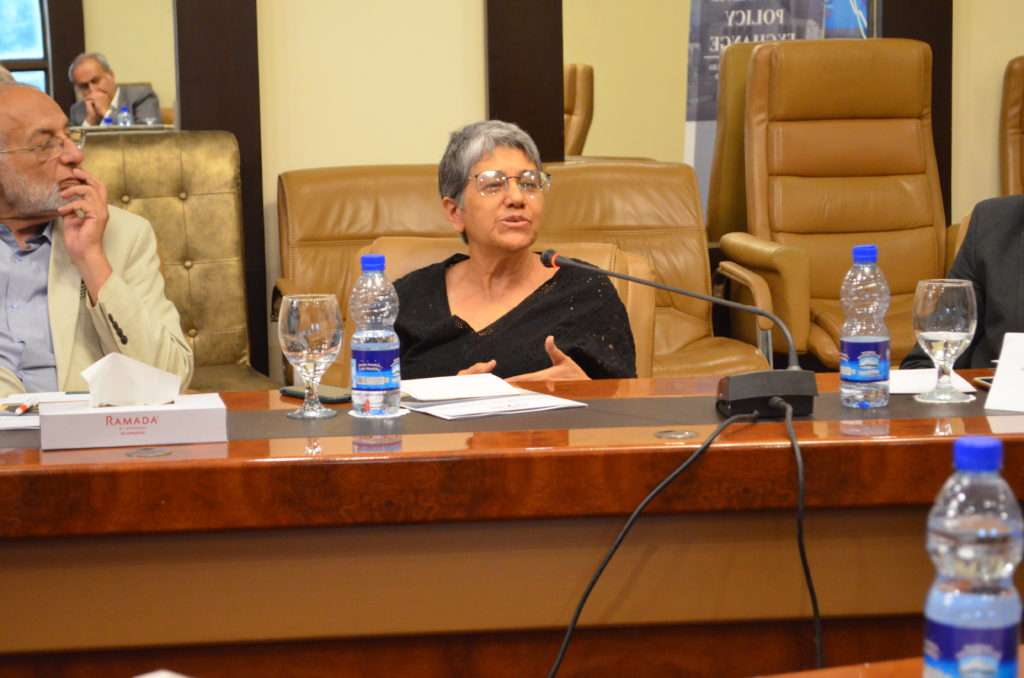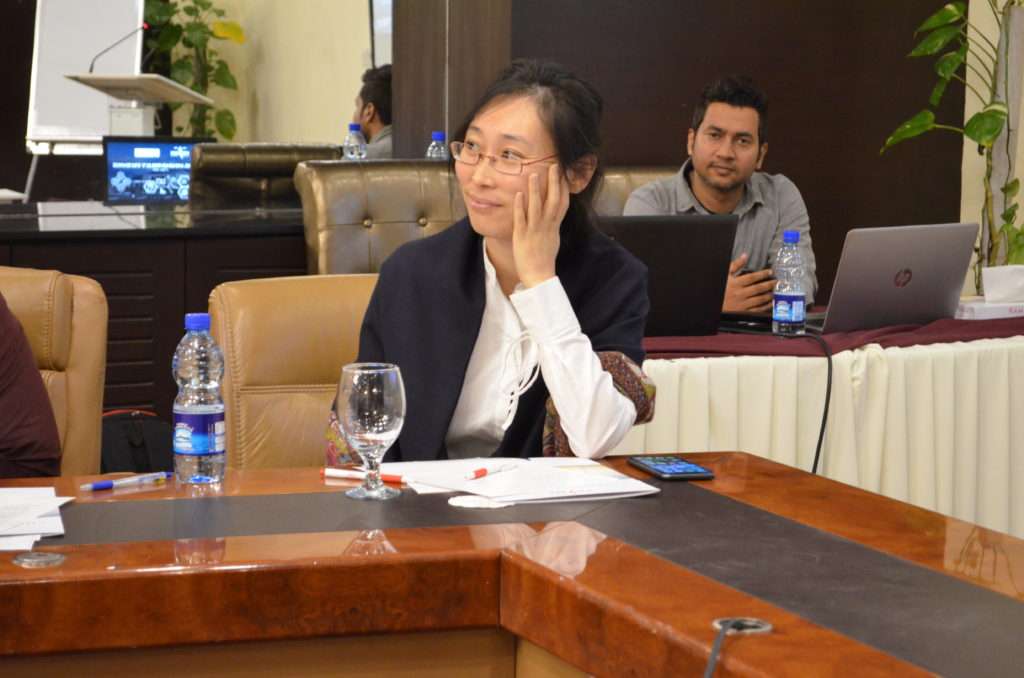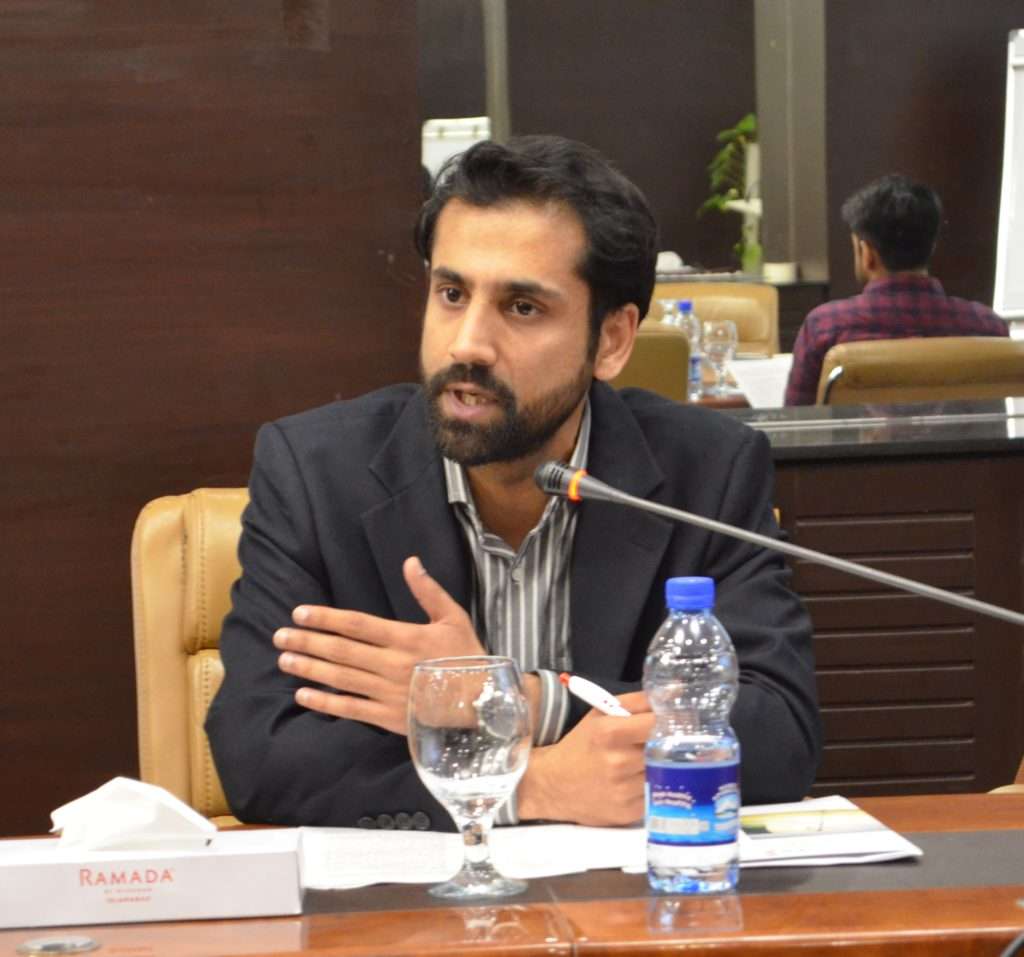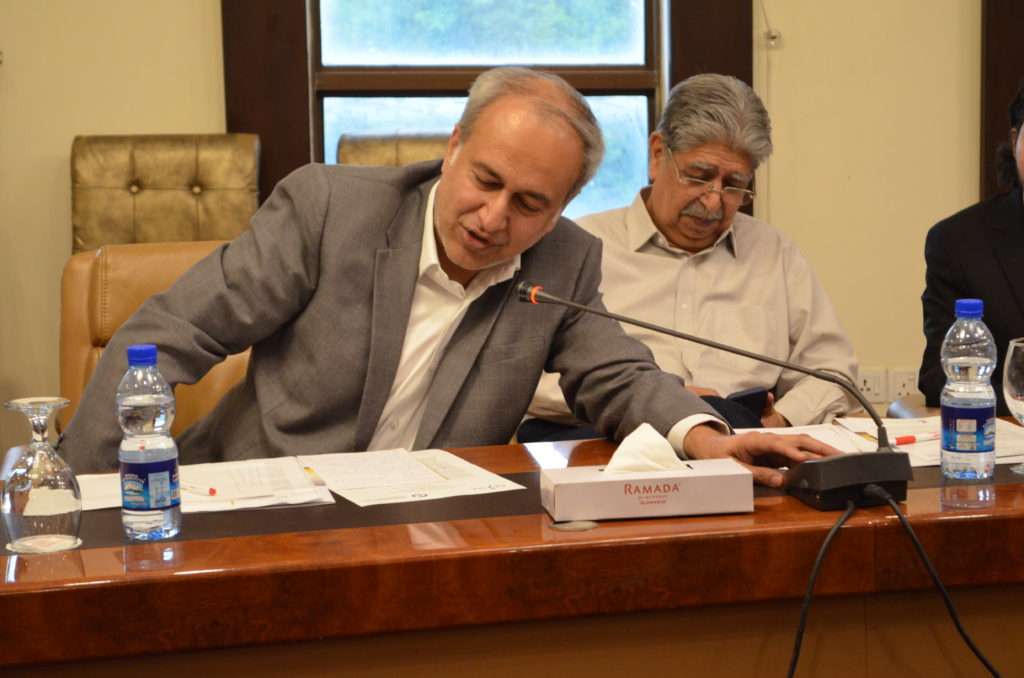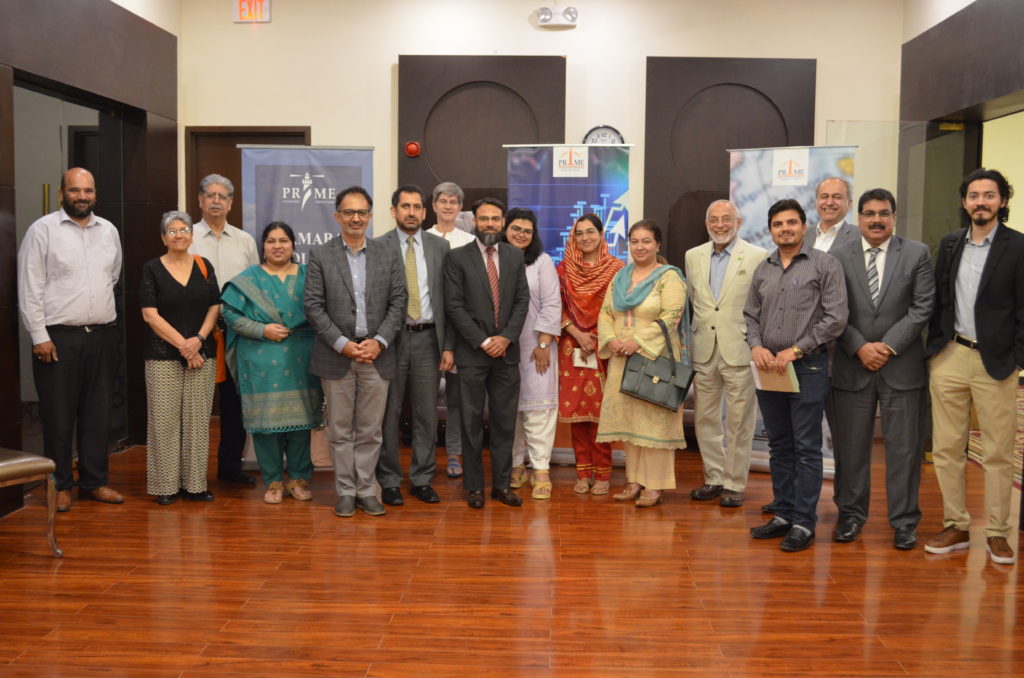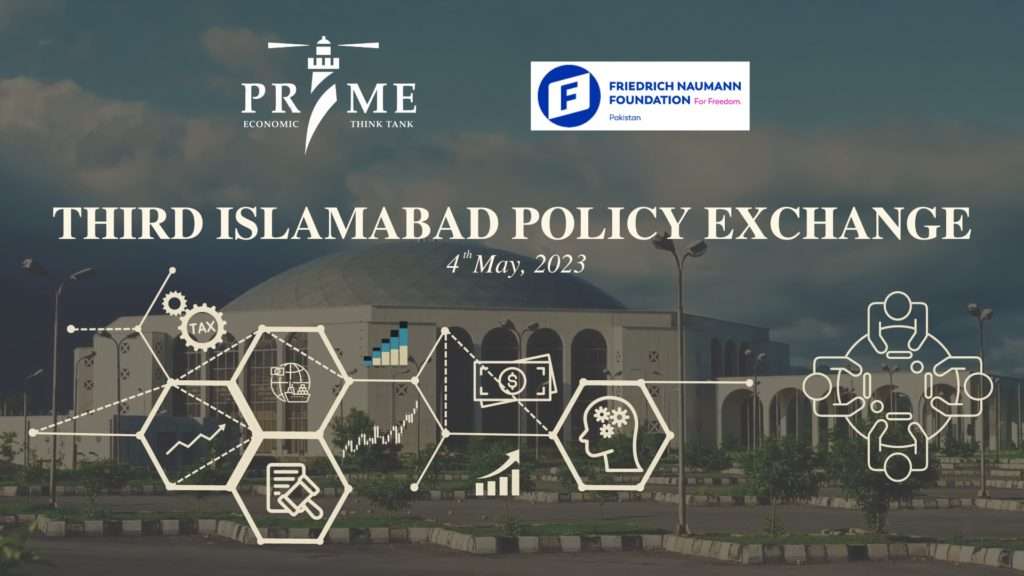
PRIME (Policy Research Institute of Market Economy) organized the 3rd Islamabad Policy Exchange on 4th of May 2023. The event was attended by policy practitioners from the government and private sector.
The discussion revolved around tax reforms with special focus on Pakistan Raises Revenue Program (PRRP),Withholding tax proposal on simplification of procedures and suggestions put forth by Revenue and Resource Mobilization Commission.
The Islamabad Policy Exchange is a forum for candid discussions for policy stakeholders, held under Chatham House rules.
The audience was informed about the progress government has made so far in the PRRP. The project is of $400 million supported by World Bank with the objective to increase the revenue collection from broadening of tax base and promotion of compliance through simple and transparent tax system, compliance facilitation and institutional development.
The program has 10 disbursement linked indicators where a tranche is released after completion of pre-defined targets. In the program, the scope of withholding tax regime is contracted due to its distortionary impact and the Federal Board of Revenue (FBR) is promoting transparency by publishing tax expenditure and tax gap reports regularly. Moreover, the effectiveness and transparency of FBR is evaluated with development of key performance indicators and annual reports.
The audience was informed that the Track and Trace system has been implemented in 10 sectors in Pakistan which has contributed to curtailment of smuggling. However, the problem continues to prevail but with lesser impact. Moreover, coordination of FBR with provincial revenue boards is gradually improved for better data sharing aimed at harmonization of taxes.
The hurdles encountered in the overhaul of the taxation system comprise undocumented supply chain, leakages in withholding taxes, mis-invoicing and smuggling.
The experts highlighted the requisite principles for undertaking tax reforms in the country starting with promoting simplicity in legislation and procedures to digitization of processes to evaluate broad based impact of the taxes.
The withholding taxation system has gradually gained momentum where its share in direct taxes has increased from 44 percent in 1985 to 67 percent in 2022. The current withholding tax regime is complex which often contributes to double or even multiple taxation. The regime is distortionary in nature due to multiplicity of rates for filers and non-filers. It is used as a revenue generating tool but falls short to broaden the tax base.
The withholding tax regime needs simplification both at the federal and provincial levels. The multiplicity of rates creates distortion disincentives, which can only be addressed by uniformity of rates. The documentation and reporting should be simplified and minimized.
The reforms proposed by Revenue and Resource Mobilization Commission were also discussed in the event. The proposed reforms by commission are distortionary due the fact that they envisages increase in the rates of advance taxes in different categories. Moreover, different rates are suggested for filers and non-filers thus providing acknowledgement to non-filers as a legal entity.
The participants unanimously agreed that current taxation system is complex and is also lacking to build trust between the government and the citizens, which leads to fall in compliance and more tax evasion. In addition, the high rates of taxes encourages people to stay out of the taxation system as the cost of compliance is high. Therefore, it is recommended to reduce the rates and number of taxes to promote broadening of tax base. It was also considered imperative to promote research and impact analysis within the FBR to evaluate the utility of any tax reform.
